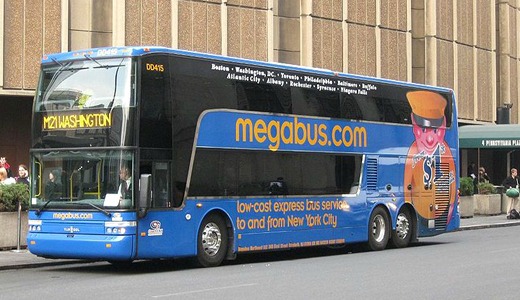
WASHINGTON – The next time you get on an inter-city bus, be it a regular bus that goes to a terminal or a bus run by one of the hundreds of recent cut-rate “curbside” bus firms that have sprung up nationwide, ask the driver how many hours he or she has spent behind the wheel in the last week.
If it’s more than 40, get off.
That’s because a new National Transportation Safety Board report identifies bus driver fatigue, caused by excessive amounts of unpaid forced overtime, as the top cause of death in bus crashes in the last decade, the Amalgamated Transit Union says.
And the drivers are wrecked because they’re often paid so little that they must take second jobs in the off hours they do have, union President Larry Hanley adds.
All of this adds up to a safety hazard for the nation’s intercity bus passengers, the NTSB report noted. Just in the last six months, two crashes of so-called “curbside” buses killed 22 people and injured 159.
“Business and safety practices within the growing curbside bus industry create challenges for enforcement authorities and consumers alike when it comes to separating the safe operators from the unsafe operators,” NTSB Chairman Deborah Hersman said in releasing the report Oct. 31. In the last six years, the curbside bus firms had six times as many crashes per 100 buses as the scheduled operators did.
But Hanley said many drivers for regularly scheduled buses that go terminal to terminal also don’t get paid overtime – and that endangers passengers. Driver fatigue accounts for 36 percent of fatalities in intercity bus crashes, he pointed out. He called tired drivers “a problem throughout the industry, not just at so-called curbside operators.”
“Hundreds of intercity bus companies get away with paying their bus drivers criminally low wages, forcing drivers to work 100 hours a week or more, often balancing two or three jobs, just to make a living. The unsuspecting customers get on these buses and disaster can strike,” Hanley warned.
The exceptions are ATU-unionized firms, such as Greyhound.
“While a more rigorous regulatory regime for this industry is critically important, any serious proposal to clean up the discount bus industry unequivocally has to include a solution for driver fatigue,” he added.
The union is pushing legislation to put all intercity bus firms under the Fair Labor Standards Act, which orders that workers get overtime pay after toiling for at least 40 hours a week.
Photo: AEMoreira042281/Wikipedia












Comments